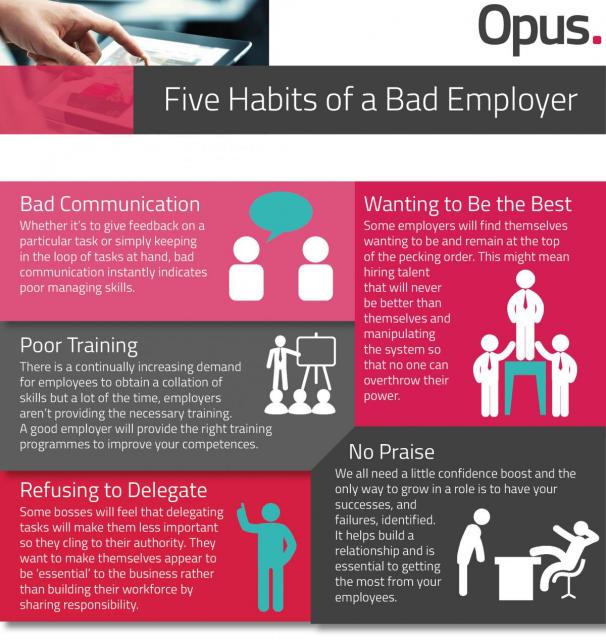Search the Community
Showing results for tags 'Employer'.
-
On concerns that flexi-work would result in more jobs offshoring, the Minister of State for Manpower said it was more important to make sure Singapore's workers stay globally competitive in skills and productivity. SINGAPORE: Employers with workers on flexible work arrangements have no basis to cut their pay if their productivity is not affected, Minister of State for Manpower Gan Siow Huang said on Tuesday (May 7). She was responding to a question by Nominated Member of Parliament (NMP) Raj Thomas on how the tripartite guidelines on flexible work arrangement requests would interact with the progressive wage model. The new guidelines, which come into effect on Dec 1, require all employers to have a process for their employees to request flexible work arrangements. Employers must give fair consideration to the requests and respond within two months. They can reject a request on "reasonable business grounds", and must give the employee the reason in writing. The progressive wage model provides a structure for wages to rise along with training and productivity improvements. It covers lower-wage local workers in certain sectors, like cleaning and security. Mr Thomas asked whether an employer would have to reject a worker's request for flexible work arrangements if it meant the worker would work fewer days, bringing his or her gross wage below the prescribed floor of the model. Ms Gan questioned the assumption that pay would be reduced in the first place, saying that employers have to pay competitively to attract and retain good workers. "For workers who are on flexible work arrangements, if their work output, productivity is not affected, actually there is no basis for employers to reduce their pay," she said. Manpower Minister Tan See Leng said that "the spirit of the PWM (progressive wage model) should really lead the entire thinking" behind the implementation of any guidelines. He said the guidelines on flexible work arrangements were based on tripartism and collaboration, and represented a "very nuanced approach". "I think we are moving into newer waters, and I would seek an appeal to the understanding, the support and also the patience of all of us together as one united society, to come together to make this work for the betterment of all of our future generations of workers." Dr Wan Rizal (PAP-Jalan Besar) raised concerns from workers who may want flexible work arrangements but fear if their personal issues, like mental health, are aired in the process, that this could hurt their career progression. Ms Gan reiterated that employers must assess employees' performance and pay them fairly based on work done, and not discriminate based on health conditions that do not affect their performance. After the guidelines were announced, some employers told CNA that as managing remote teams becomes more common, they may rethink hiring local staff and look overseas for recruitment, particularly given the difference in costs. Members of the tripartite working group that drafted the guidelines, co-chaired by Ms Gan, have said that ensuring the local workforce stays competitive will be key as Singapore normalises flexible work arrangements. On Tuesday, Ms Gan reiterated that remote work and outsourcing are already global trends regardless of Singapore's guidelines. "Even if foreigners are not working in Singapore ... they will still be competing with us when working in companies overseas," she said. It was more important for local workers to continually upskill and stay productive to compete for jobs not just in Singapore, but globally, she added. MP Cheryl Chan (PAP-East Coast) then asked whether Singapore would see more offshoring of jobs as a result of the flexible work arrangement guidelines. She also asked whether middle-aged professionals, managers, executives and technicians (PMETs) would be disadvantaged by the guidelines and by the redesign of job roles to accommodate flexible work arrangements. Ms Gan replied that flexible work arrangements were not limited to flexi-place arrangements (like working from home), and did not mean workers will be less productive. She added that businesses were driven by their own bottom lines in assessing talent and costs. "I think we should not pretend that without flexible work arrangements, there'll be less offshoring," she said. "I would also point out that elsewhere, in the US, for example, we are also seeing some tech companies putting out statements that remote work does not work for them. "There seems to be some suggestion that actually, for certain sectors and for certain types of work, physical on-site presence, teamwork, all these are still very key." She said that some companies in Singapore have shared similar feedback, adding: "For those, I think offshoring may not be a natural choice, and certainly would not be affected by these guidelines." Ms Gan said that the focus for middle-aged PMETs is on making sure they have the right skills and on their "career health" to make sure they stay employable. Addressing MPs' questions, she also reiterated that the guidelines do not mandate flexible work arrangements or set hard targets. "For flexible work arrangements to be successful, it must make businesses sustainable for the employers," she said. "It does not make sense to require businesses to offer flexible work arrangements, even when it negatively impacts business and affects employment prospects for Singaporeans."
- 55 replies
-
- wfh
- work from home
- (and 11 more)
-
From September, the professional jobs networking site LinkedIn will pilot a new job-matching platform in Singapore that focuses on candidates’ skill sets, rather than educational qualifications and past job titles. This is to give jobseekers a better shot at gaining access to new employment opportunities. The Skills Path initiative, supported by the National Jobs Council, will allow applicants here to complete skill assessment tests unique to the job roles they are applying for, so as to demonstrate their competencies. They therefore do not need to rely solely on their traditional qualifications to get a foot in the door. Employers may then evaluate candidates based on their skills rather than judge them solely on their degrees, job titles and networks to fill a vacancy, LinkedIn said on Saturday (Aug 14). For a start, the pilot platform will feature one job advertisement each from eight different companies that have already come on board the initiative, with plans to get more companies to join. The employers are: Property developer CapitaLand, OCBC bank, food delivery firm FoodPanda, NTUC Enterprise, pharmaceutical company Zuellig Pharma, and e-commerce sites Carousell, Lazada and Zalora. They will put up job advertisements for six selected job roles, including customer service, data analyst, project manager and sales development, LinkedIn said. Jobseekers who are interested in finding career opportunities via Skills Path may do so by setting their profile status on LinkedIn to #OpenToWork. https://www.todayonline.com/singapore/linkedin-launches-singapore-job-platform-focused-more-applicants-skills-education-past-job-titles Any LinkedIn users here? How many of you actually pay for its premium account?
- 10 replies
-
- skills path
- (and 6 more)
-
Why all those who quit are normally good employees? Here’s 8 reasons why! It is not all difficult to retain a good, hard-working employee in Singapore. The Lion City has an excellent working environment, salary packages are attractive and rank high up in Asia. But just why big companies will often force employees out of the door? Just why good employees leave? Well, because they simply know their talent can be realized somewhere else. If companies can’t provide a harmonious workplace, it won’t be hard to see why they can’t hold on to the talented employees. A consultancy report from CEB said that usually 33% of top-ranked employees normally have this conflict with their employers and would have started seeking for greener pastures just few weeks into their job! Once a company loses the heart of their top-ranked employees, the group will not just choose to say I QUIT! They will also lose interest in their job. Mr Michael E. Kibler from Corporate Balance Concepts INC, an employee coaching firm, has been researching why employees quit their companies. He attributes this to “executive brownout”. To put it simply, no battery already! Staff affected by this phenomenon become disengaged, demotivated and lose interest in their jobs. The more usual symptoms will be disengagement, discontent and lethargy. On the surface, their job performance is not bad, but they are secretly going downhill, and the exit door is where they are headed. Companies who want to avoid this from happening can try to avoid these 8 workplace practices, which normally get under the skin of top-rated employees. #1. Don’t put up too much rules Yes. Simple as that. Don’t make it like a school, where there are even restrictions on meal times and toilet breaks. Employees feel restrained simply by that and the doubts will start to creep in. All are working professionals, not little children! #2. All are equal In the eyes of the law, all are equal. But it shouldn’t be the same at a workplace. The elite will feel left out should the boss treat all equally. They will think that all the rewards and benefits they deserve aren’t any different from those who have poor work performance. #3. Enduring poor work performance If a company doesn’t act in helping an employee snap out from poor performance, such as sending him for courses, he will soon drag down the whole organization. The company got to solve this problem fast and not act blur. #4. Non acknowledgment of the talented ones Who doesn’t like to be recognized for the hard work put in? It is just like the Employee of the Month plaque you see in fast food restaurants. Seriously, this is the best thing a company can do if they are already not handing out 13th month bonus! #5. Show some love, lah! A relationship between company and employee is like watering a plant. If you don’t give it TLC (Tender, Love, Care), how do you expect it to grow. You must show care and concern for your employee! Remember, they are not robots! They are made of flesh and blood! #6. Future When distributing work, give them a perspective on how this will help in their career advancement. Don’t just simply shove them work and give them deadline! #7. Let them pursue other interests! Google normally gives out 20% of an employee’s worktime to let them pursue their own interest, and this should be of beneficial value to the company. It is vital as employees will enter a FLOW mentality. It is one that allows employees to enjoy their work, and expand their capability. #8. Make the workplace interesting If employees can’t enjoy sticking around a workplace, the company really got to start thinking. Ever heard of the saying, all work and no play makes Jack a dull boy? Go Google HQ find out, look into their HQ, see how fun it is to work there! To sum it up, a good company shouldn’t be sending out terse notices all the time. They should learn to mix heavy work with great fun. That is the ultimate recipe to a conducive work environment.
-
Why!? Why!? Why?! are we still seeing such cases??? Still ask for discount??? CCB! http://www.straitstimes.com/news/singapore/courts-crime/story/employer-used-household-items-hit-and-burn-domestic-worker-2015052 Employer used household items to hit and burn domestic worker By Elena Chong SINGAPORE - A woman heated a metal ladle until it was red hot and placed it on the calf and bare back of her domestic worker because she did not like the taste of the curry she cooked, a court heard on Friday. About a week before that, Suganthi Jayaraman, 33, used a metal pestle to hit Ms Naw Mu De Paw, 24, on her head for not frying vadais - a deep-fried snack - fast enough. The Myanmar helper bled heavily from the two spots she was hit, but was forced to continue frying, and to take the vadais to a provision shop which Suganthi and her husband were then running. Suganthi pleaded guilty to three of seven charges. The offences took place at her flat in Woodlands Drive 16. The court heard that during the time the helper was abused - from July 9 to Oct 2, 2013 - she lived in constant fear of being beaten again. She was often afraid to tell anyone about an incident and did not even dare to inspect her wounds as Suganthi would scold her for it, said Deputy Public Prosecutor Sarah Chua. Suganthi would also threaten the victim that she would get into trouble if she ran away or called the police. The victim eventually left the flat on Oct 3 and called the police. On the morning of Sept 30, Ms Naw woke up late because she had been working till 4am the night before. She was supposed to be up by 6.30am to send her employer's daughter to school. Suganthi confronted her and scolded her harshly after finding the girl still at home. Then she punched her in the face. Lawyer Louis Joseph said his client, who had been crying in the dock, deserved some discount for her guilty plea. "Even though her behaviour was unforgivable, she stands before you remorseful and regretful for what she had done," he told District Judge Christopher Goh, who will sentence her on June 5. Suganthi could be jailed for up to 10-and-a-half years and fined for causing hurt with a heated substance. The punishment for the other two offences is a jail term of up to three years and/or fine of up to $7,500 each. [email protected] Copyright © 2015 Singapore Press Holdings. All rights reserved.
-
Summary. Employer fine $1 per every minute she late for work even after he give her allowances to start work at 9.30 instead of 9am and she still being frequent late for work. Than she lost an excel file she is working on and she was told to backup their work but she didn't and thus deduct 70% of her.. pay. Under contract terms of her 1yr contract, she need to pay back 3 months salary should she leave company in her contract terms. And employer refused to pay her whole month of march because she was absent without leave for 2 days. ........ So is employer being fair to employee in this incident that happened.
-
Hi all, Employer jailed 2 (two) weeks for maid abuse. do you all think it is fair ? i mean, how many times this things repeated (maid abuse)? Let help better quality life for all of human race.
-
Hi all, I was told by my kid that she was rewarded S$20 for helping some rich students in her primary school to do homework. She told me this is fairly common. These rich kids' parents very busy type, only know how to give their children plenty of pocket money to keep them occupied. Since things are expensive in Singapore, sometimes student also buy back some accessories (ear rings, key chains & etc) from nearby countries and resell them to richer students and earn a profit . Quite well run I was told. There would be a distributor (student) in school then resell them through their dealers (also students) . Very enterprising at their age. Sometimes, I wonder if this is good or bad.... Regards,
-
hey guys, anyone took loan from your company before? interest free or with interest?? what's the pros and cons of doing so?
-
I put up this topic for discussion since another post titled a 'Taxi driver blog' has surfaced and caught even the media's attention. I sensed his primary motive ( with his comments in his blog) was skrewed towards creating an impression that his employer was 'unfair to him' and he even made unsavory comments about the entire organisational structure and what it has become. This is HIGHLY UNPROFESSIONAL particularly if he well knew, that his posts and comments are able to be viewed publicly. This goes well with the fact ,as to why he had to take on a 'low life' type of occupation if his character was as such mentioned above. I am sure, there are idiots who would 'support' ppl like him here. Not so much because he is a brave individual but he seems to be a HERO in their eyes becos he seems to be 'able to go against an established system' that is created and managed by the governing authority. But in reality, his grievences are nothing but private affairs between him and his previous employer but to use the internet as a tool, to advance his cause and to criticise the system as the overall fault for his own 'demise in the job market, would only make him look like a FOOL but professional ppl would definitely look at this individual in a very bad light !
-
I find is quite disturbing that many in this forum and perhaps in many others agree , that being a boss or employer is that the boss can exercise and exhibit an attitude of 'be it all or nothing' kind of behaviour. Maybe that is true in certain industries and perhaps that will never change but we being humans, must realise that there is an element of : HOW ONE HUMAN SHOULD TREAT ONE ANOTHER'!...and this is a UNIVERSAL TRUTH, no matter where you are and what you do. Of course with the recent news, of a local big bank giving so many employees pink slips does not help, these and many others ( including a thread here) does not help to foster trust and true motivation between employer and employee. Maybe it would be helpful if the others here can give examples of the 'HOW to?' and What not to do' in dealing with your fellow kind, who happen to be an employee or such?
-
May 27, 2008 No need for mandatory rest day for maids: Minister THE Government has no plans to introduce a mandatory rest day for foreign maids - at this point, said acting Minister for Manpower Gan Kim Yong. In a written response to a question from Nominated MP Siew Kum Hong in Parliament on Monday, Mr Gan said most maids are happy working in Singapore and the reported cases of abuse have remained low. 'There is therefore no need at this point for MOM to legislate a mandatory rest day,' he said, reiterating that the ministry is committed to safeguarding the well-being of foreign domestic workers (FDWs) in Singapore. Mr Gan said as part of the Work Permit conditions, employers are responsible for the well-being of their FDWs, including the provision of adequate rest. Employers who fail to comply with this requirement can be fined up to $5,000 and/or jailed up to six months. They will also be barred from hiring another maid. In addition, the accreditation bodies have, in 2006, introduced a standard employment contract for FDWs. All accredited employment agencies are required to use this standard contract. The standard contract requires employer to stipulate the number of rest days per month, and zero is not an option, said the minister. Employers are also required to compensate their FDWs salary, should the FDWs work during their rest days. 'This is a more practical approach than legislating a fixed number of rest days per month for FDWs, given the unique nature of domestic work,' added Mr Gan. 'Households that have for example disabled family members who require constant attention may find it difficult to release the FDW for a prescribed period every month. Therefore, allowing households the flexibility to work out an employment arrangement with their FDWs, including paying their FDWs for not taking their rest days, is a more sensible approach. 'Nonetheless, MOM encourages employers to grant FDWs rest days regularly wherever possible.'
-
during an interview, does it matter to your colleague and boss where you stay?










